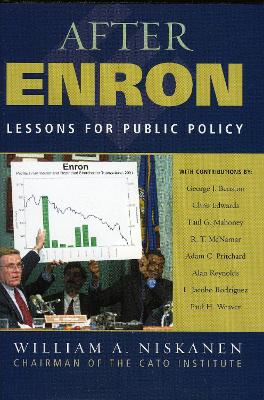After Enron first describes the conditions that led to the collapse of Enron and other corporate scandals and the concerns that these developments raised among the public, the press, and political officials. The book then describes and evaluates the initial private and public responses to these developments and concludes that most of these responses were unnecessary, harmful, or inadequate. There are four major lessons learned during the post-Enron scandal era: Don't count too much on financial accounting. Don't count too much on auditing. The tax system is an important part of the problem. The rules of corporate governance do not adequately serve the interests of general shareholders. After Enron addresses the major lessons for public policy affecting accounting, auditing, taxation, and corporate government. It proposes a set of policy changes to address the lessons learned from the Enron scandal. The first major set of proposed changes would delegate the authority to establish and monitor accounting and disclosure standards to each stock exchange. A second major proposal would replace the corporate income tax with a cash flow tax. And a final set of proposed policy changes would replace the rules of corporate governance that are now biased against the interest of the general shareholders. The most distinctive feature of the book is that the major proposed policy changes would address the problems illustrated by the corporate scandals by reducing and focusing the role of government.
- ISBN10 0742544346
- ISBN13 9780742544345
- Publish Date 3 May 2007 (first published 29 April 2005)
- Publish Status Out of Print
- Out of Print 5 February 2025
- Publish Country US
- Publisher Rowman & Littlefield
- Imprint Rowman & Littlefield Publishers
- Format Paperback
- Pages 408
- Language English
